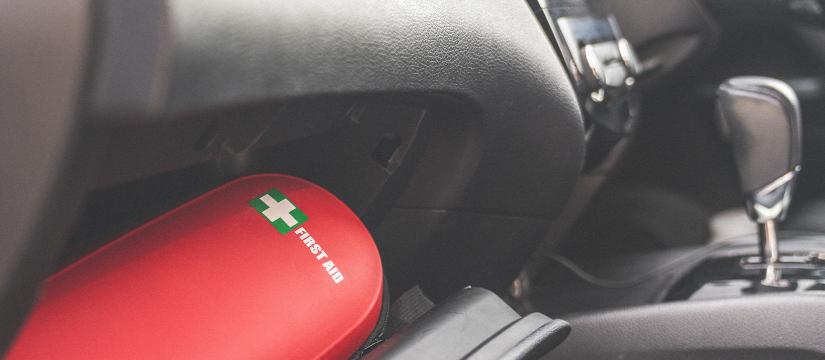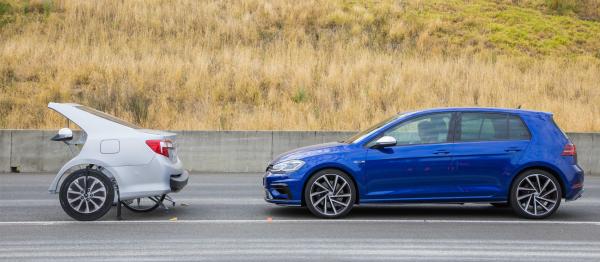
5 things to keep in your car (and 5 things not to)
Some people treat their car as a second wardrobe (a ‘cardrobe’) and fill the boot with clothes, books and other miscellaneous items ‘just in case’. While others opt for a minimalist approach, with a spotless boot and near empty glove box. Regardless of where you sit on the spectrum, there are some things you should always keep in your car, and some things that you should never keep in your car.
The two main things to consider are that in the Australian summer sun, the inside of a car can regularly reach temperatures over 60 degrees celsius, and Australia is a vast country and if something happens on the road, help may be hours away.
This is also probably a timely reminder to make sure your car cover is up to date.
Here is our list of five must-haves for your car, as well as five things to keep out of it.
Do
First aid kit You never know when you’ll need to treat an injury and you don’t want the nearest first aid supplies to be too far away. We should all keep a well stocked first aid kit in our car. You can buy them already made, or build one yourself with basics such as band-aids, bandages, sterile gauze, gloves, masks and extra hand sanitizer.
Car manual It might seem obvious but the best place to leave your car manual is inside the car. Manuals contain tips and instructions for using your car, as well as how to decode error lights. In case of emergency you’re going to want it on hand, and so keeping it in the glove box or safely in the boot will mean it’s always accessible when you need it.
Water in glass or stainless steel
It is always a good idea to have some spare drinking water in the car, ideally kept in a glass or stainless steel bottle, and changed monthly. This water can be particularly useful in case of emergency when you may be stuck far away from clean water. Water kept in a plastic water bottle can be damaged by the heat, making it potentially unsafe to drink, which is why we recommend a non-plastic container.
Fire extinguishers
Fires in cars will occasionally happen, often from the electronics in the dashboard or under the hood, and using a small fire extinguisher will help put it out safely, before it becomes unmanageable. You should also make sure you know how to use your extinguisher. A good tip to remember is P.A.S.S.; pull the pin, aim the extinguisher nozzle low, squeeze the handle, and sweep the nozzle side to side until the fire is out. Having a fire extinguisher on hand will stop a car fire from spreading to surrounding areas which can result in uncontrollable bushfires.
Blanket
A blanket is one of those items with multiple uses in case of emergency. In the winter, it can be used to keep warm and if you have broken down in the summer, it will likely be cooler to sit outside of your car on a blanket in the shade, than to wait in the car. You can also put a blanket on the ground should you need to look underneath your car for damage. A blanket also makes it easier to fall asleep in the car should you feel the need to have a nap on a long drive.
Don’t
Medication
In the heat, medication will start to decrease its potency. This means that a ‘dose’ may become weaker than it should be. You should never leave medicine in a hot car long term. Rather keep it in your bag so that it’s always nearby, but not left to bake. Although we don’t recommend leaving your medicine in the car on purpose, in case of emergency, particularly with fast-acting medicines such as a puffer for asthma or an epipen for an anaphylactic allergic reaction, a heat-damaged dose is better than nothing.
Water in plastic bottle
Sunlight and heat can break down plastic which leeches into the water that you then drink. Leaving it in there for one or two days is probably fine, but you don’t want to be drinking water that has been exposed to extreme heat for weeks on end.
Sunscreen
The active ingredients in sunscreen can be damaged by heat, making them less effective. Instead we recommend keeping some by your front door and taking it with you for the day, when needed.
Wine
Heat is not kind to wine. Wine that has been left in a hot car can ‘cook’. This means that the light fruity flavours can literally become ‘stewed’ notes, changing the taste completely. Worse still, if you have bottles with corks, the heat can expand the liquid, placing pressure on the cork and causing it to push out. This will either result in a sticky mess, or ‘corked’ wine that ages prematurely.
Electronics
We’ve all seen the warnings that high temperatures can damage our electronics, and it doesn’t get much hotter than inside a car in the australian sun. High heat can cause irreversible damage to rechargeable batteries of your electronics, making them unable to hold charge as efficiently. If you have accidentally left electronics in a hot car, make sure they’ve cooled down before you turn them on again.
As prepared as you may be, accidents do happen. NRMA has a range of car insurance options to make sure you and your car are covered. For more information visit https://www.nrma.com.au/car-insurance.



